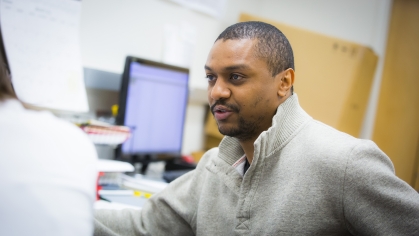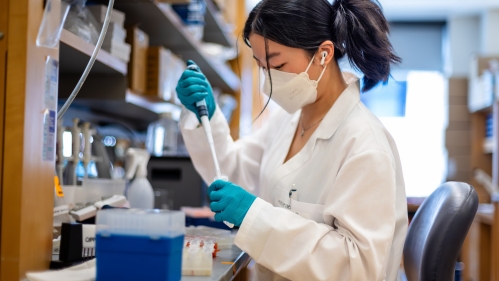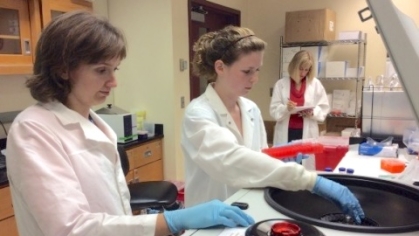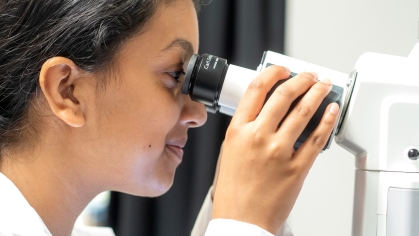The Summer Research Program for first- and second-year medical students is designed to provide highly motivated and talented students with valuable experience in participating in a research project; acquaint them with scientific methodology; and enhance their analytic and laboratory skills, as well as their presentation and writing skills.
The program provides an atmosphere that encourages and facilitates student interactions with a diverse group of established investigators and clinicians. The rationale for the program is that exposure to a superior research environment will ultimately result in better and more able physicians. It also opens the possibility for students to consider pursuing biomedical, clinical and/or translational research as physician-scientists dedicated to enhancing healthcare.
Under the guidance of faculty, students conduct short-term research projects in areas of basic, translational, or clinical investigation. Students will attend a core curriculum consisting of weekly lectures on broad topics in medical research and career advice. They will complete a poster describing their research to be presented at a research forum at the conclusion of the summer program. After successful completion of the program, students will receive a certificate of accomplishment.
Participation Options
The program runs during the summer break, mid-June to mid-August for seven weeks, followed by a symposium.
Summer Student Research Fellowship
Designed for medical students with a chosen mentor and project.
Click HERE to access the 2025 Fellowship application – DEADLINE is APRIL 2, 2025 by 4PM
Summer Student Research Training
Designed for medical students who have not identified a mentored project.
The 2025 application link will open March 1, 2025, and will close April 5, 2025
Click HERE to access the 2025 application




